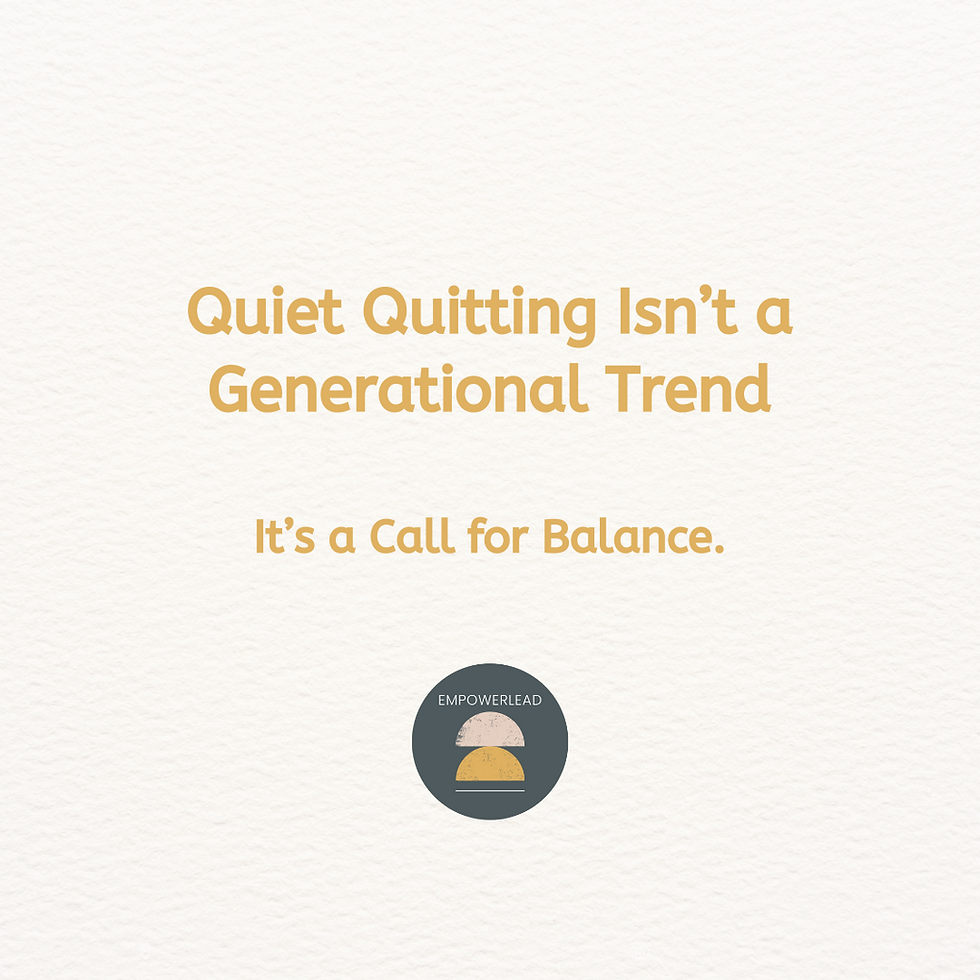Quiet Quitting wasn’t a Generational Trend
- Karen Jaeger Collins
- Jul 29, 2025
- 2 min read
“Quiet quitting” made headlines during the pandemic, often cast as a generational issue. But quiet quitting isn’t about age, it’s about people feeling aligned with their

purpose and their life-work balance. It’s about acting your wage, not your age.
If you suspect that someone on your team might be quietly disengaging, it’s an invitation to open up, not to blame or judge. This can be a chance for a real, courageous conversation.
Below are seven questions to open up an honest dialogue, encourage reflection, and foster a culture of support and growth. Use these questions to understand your team members, hear their experiences, and create a stronger foundation for connection and motivation.
7 Questions to Encourage Open Dialogue
What are you celebrating this week?
Start by recognizing achievements, big or small, to set a positive tone and acknowledge contributions.
What are you excited about within the organization’s goals?
This question helps you understand what resonates with them, shedding light on what they value within the organization.
What are you working on right now that gives you energy?
Knowing what energizes them can help align their responsibilities with tasks that bring out their best.
What drains you about your daily job tasks right now?
Uncovering areas of frustration can reveal opportunities to adjust workloads, provide resources, or even reimagine certain responsibilities.
What self-development projects are you working on?
Support them in their growth. Personal and professional development are essential in helping people feel engaged and valued.
Where do you feel stuck?
This question offers insight into any obstacles they may be facing, allowing you to address them constructively.
What support do you need?
It may not be support from you that they need. You may not have a lot of time to offer support, so be intentional with the words you use here to be sincere in helping find the right support.

Quiet quitting doesn’t have to be the end, it can be a starting point for meaningful conversations, realignment, and a more supportive workplace. By addressing disengagement early, you create a culture where people feel seen, heard, and supported.




Comments